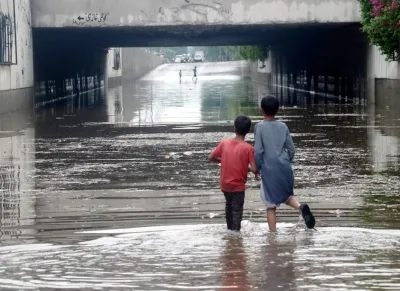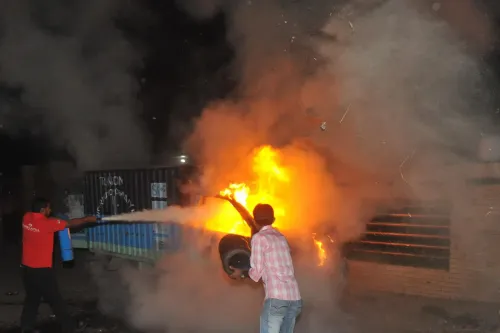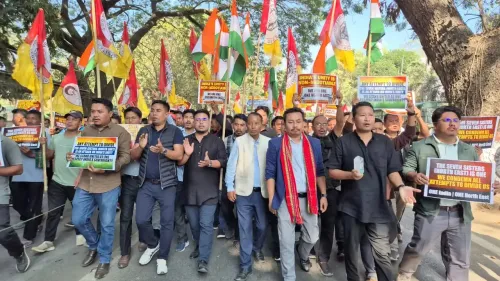How Many Lives Have Monsoon Rains Claimed in Pakistan?

Synopsis
Key Takeaways
- The death toll from monsoon rains in Pakistan has reached 266.
- Punjab province is the worst-hit area with numerous casualties.
- Government has identified vulnerable regions to combat flooding.
- Residents express frustration over lack of official support during disasters.
- Rain-triggered incidents have resulted in over 628 injuries across the country.
Islamabad, July 25 (NationPress) - As relentless monsoon rains wreak havoc across Pakistan, the nation mourns the loss of another eight individuals within the last 24 hours, raising the overall death toll to 266. This alarming figure comes from the latest update by the National Disaster Management Authority (NDMA), as reported by local media on Friday.
The latest fatalities include three deaths and five injuries in Khyber-Pakhtunkhwa, while Islamabad and Pakistan-occupied Gilgit-Baltistan each recorded two deaths. Additionally, one death occurred in Sindh.
Since the onset of the monsoon season in late June, a cumulative total of 266 lives have been lost, comprising 94 men, 46 women, and 126 children. Furthermore, around 628 individuals have been injured in rain-related incidents, as highlighted by The Express Tribune.
Punjab province has been identified as the most severely affected area, reporting over 144 deaths and 488 injuries.
In light of the recent catastrophic floods in Rawalpindi, local authorities have pinpointed 19 urban areas as particularly susceptible to flash floods.
Deputy Commissioner Hassan Waqar Cheema has circulated a list of these high-risk zones, designating Assistant Commissioners, Tehsildars, and departmental heads as supervisory officers for each region.
The vulnerable areas in Rawalpindi encompass: New Katarian Lai Bridge, Bangash Colony, Ziaul Haq Colony, Boring Road, Pirwadhai Bridge, Dhoke Naju, Dhoke Dalal, Dhoke Hassu Bridge, Hazara Colony, Dhoke Ratta, Gawalmandi, Dhoke Elahi Bakhsh, Sadiqabad, Javed Colony, Nadeem Colony, Tahli Mohri, Jan Colony, Tench Bhatta Last Stop, Banaras Colony, and Sharon Colony (Sawan Camp).
Reports indicate that these locales have faced severe urban flooding on three distinct occasions over the past week, with water levels rising between three to five feet inside homes and streets, leading to extensive damage and impacting residents significantly.
Numerous residents from Nadeem Colony, Javed Colony, and Dhoke Elahi Bakhsh in Rawalpindi have voiced their frustration over the situation, lamenting that their communities have endured recurring floods for over five decades. They claim that during the latest inundation, there was a lack of official presence and assistance as floodwaters engulfed their neighborhoods.










